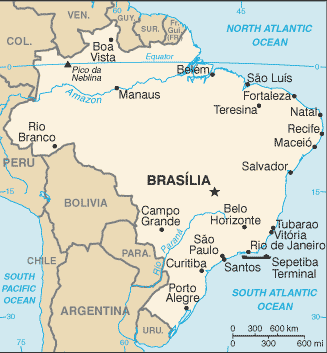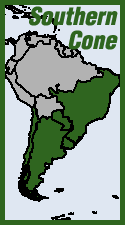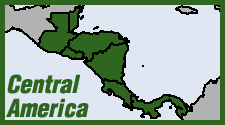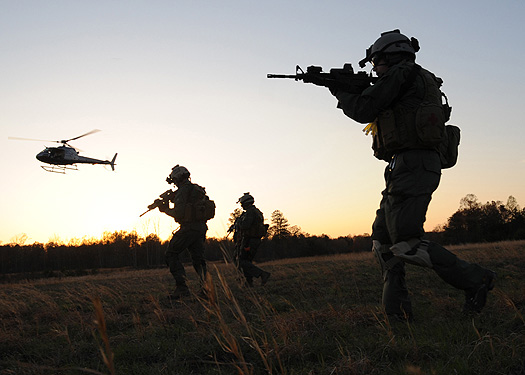After last year's victories for cannabis legalization measures in Colorado and Washington state, the US prohibition regime is under unprecedented pressure. But there is little awareness in Gringolandia of the strides in breaking with the US-led "war on drugs" in South America. Over the past decade, Argentina and Colombia have removed penalties for personal quantities of drugs, and Uruguay just passed a measure that essentially legalizes cannabis, with even cultivation permitted under state regulation. Venezuela, Bolivia and Ecuador have all barred the DEA from their territory.
That leaves Peru—now overtaking Colombia as the Andes' top coca producer, and also a burgeoning cannabis producer. Like Colombia, Peru remains a stronghold of the DEA in South America—even as it has moved towards decrim of personal quantities. Both countries have experienced long and bloody counterinsurgency wars related to the struggle for control over coca production. Much to Washington's displeasure, Peru even suspended eradication two years ago—before the empire struck back. But now activists are mounting pressure to break with the prohibition model—both in the remote campesino communities of the mountains and jungles, and in the streets of Lima.

 At least three cars, including a police vehicle, were set ablaze in the Rio de Janeiro favela of Complexo do Alemão on April 29 after the fatal shooting of an elderly woman—the latest in a series of such outbreaks as Brazilian authorities attempt to clean up Rio's slums before the World Cup games open next month. Arlinda Bezerra de Assis, 72, died after being shot in the stomach during a gun battle between police and presumed gang members. In another incident on April 23, the favela violence actually spilled into Rio's posh beachfront tourist districts—an unprecedented occurrence that doubtless struck fear deep into the hearts of the city fathers. The protests broke out in the Pavao-Pavaozinho favela, perched on the hills overlooking the famed Copacabana district.
At least three cars, including a police vehicle, were set ablaze in the Rio de Janeiro favela of Complexo do Alemão on April 29 after the fatal shooting of an elderly woman—the latest in a series of such outbreaks as Brazilian authorities attempt to clean up Rio's slums before the World Cup games open next month. Arlinda Bezerra de Assis, 72, died after being shot in the stomach during a gun battle between police and presumed gang members. In another incident on April 23, the favela violence actually spilled into Rio's posh beachfront tourist districts—an unprecedented occurrence that doubtless struck fear deep into the hearts of the city fathers. The protests broke out in the Pavao-Pavaozinho favela, perched on the hills overlooking the famed Copacabana district. Brazilian Military Police backed by Marine troops occupied the massive Maré favela next to Rio de Janeiro's Galeao international airport on March 31, allegedly without firing a shot. The aim was to secure one of the city's most violent districts, long under control of drug gangs, ahead of the World Cup, to be held in Brazil in June. Shock troops of the elite Special Police Operations Battalion (BOPE) and Marines in armored vehicles and helicopters secured the Maré area, where 130,000 people live in poverty on the north side of Rio. Police said they seized guns and 450 kilos of marijuana, and arrested two suspected dealers. But residents said most gang leaders slipped out the favela ahead of the occupation. The operation had been expected; in preceding days Police Pacification Units (UPPs) were installed in 174 of Rio's favelas— home to around 600,000 people. (
Brazilian Military Police backed by Marine troops occupied the massive Maré favela next to Rio de Janeiro's Galeao international airport on March 31, allegedly without firing a shot. The aim was to secure one of the city's most violent districts, long under control of drug gangs, ahead of the World Cup, to be held in Brazil in June. Shock troops of the elite Special Police Operations Battalion (BOPE) and Marines in armored vehicles and helicopters secured the Maré area, where 130,000 people live in poverty on the north side of Rio. Police said they seized guns and 450 kilos of marijuana, and arrested two suspected dealers. But residents said most gang leaders slipped out the favela ahead of the occupation. The operation had been expected; in preceding days Police Pacification Units (UPPs) were installed in 174 of Rio's favelas— home to around 600,000 people. ( Hundreds of police officers, sheriffs' deputies and military servicemen from across the country—many donning battle fatigues—converged on downtown Oakland's Marriott Hotel Oct. 25 for the opening of the
Hundreds of police officers, sheriffs' deputies and military servicemen from across the country—many donning battle fatigues—converged on downtown Oakland's Marriott Hotel Oct. 25 for the opening of the  As the Organization of American States (
As the Organization of American States ( As nightmarish violence continues in Mexico, with horrific massacres and chaotic urban warfare right on the USA's southern border, a couple of academics at England’s University of Sheffield provide a readable 250-page primer on why this is happening now, and take a stab at what can be done to address the crisis—other than escalating it with militarization.
As nightmarish violence continues in Mexico, with horrific massacres and chaotic urban warfare right on the USA's southern border, a couple of academics at England’s University of Sheffield provide a readable 250-page primer on why this is happening now, and take a stab at what can be done to address the crisis—other than escalating it with militarization. The most enlightened cannabis connoisseurs—those who still have a link back to the values that defined the hippie culture—tend to be conscious consumers when it comes to food or computers or whatnot. They may buy organic tomatoes, boycott Taco Bell to support exploited farm workers in Florida, and petition Apple about the brutal conditions in their Chinese assembly plants. But do they pay as much attention to the source of their preferred smoking herb?
The most enlightened cannabis connoisseurs—those who still have a link back to the values that defined the hippie culture—tend to be conscious consumers when it comes to food or computers or whatnot. They may buy organic tomatoes, boycott Taco Bell to support exploited farm workers in Florida, and petition Apple about the brutal conditions in their Chinese assembly plants. But do they pay as much attention to the source of their preferred smoking herb? 





Recent comments
3 weeks 5 days ago
7 weeks 3 days ago
11 weeks 3 days ago
12 weeks 2 days ago
22 weeks 2 days ago
26 weeks 2 days ago
27 weeks 3 days ago
27 weeks 3 days ago
48 weeks 3 days ago
1 year 3 days ago